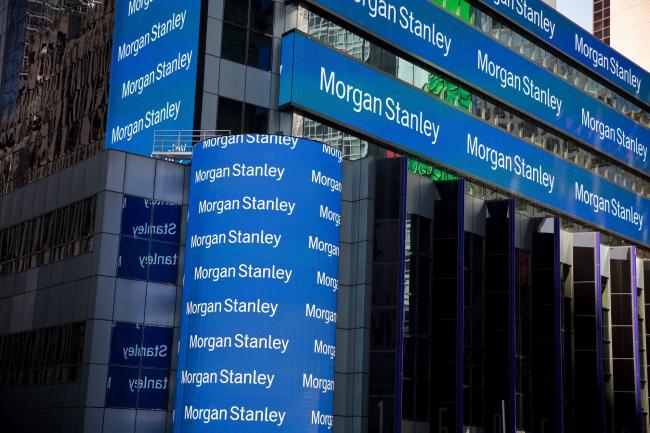This post was originally published on this site
https://i-invdn-com.akamaized.net/content/picc439e5f0edfec2403448a6eb9faf591c.jpg
(Bloomberg) — Morgan Stanley (NYSE:) predicted that American equities and corporate bonds will underperform peers next year, while the dollar weakens as growth outside the U.S. picks up.
“We see the biggest potential upside in markets with a clearer path to achievable earnings growth (Japan and EM) or scope for some multiple re-rating on falling political risks (Europe),” strategists including Andrew Sheets, Michael Wilson and Matthew Hornbach wrote in a yearly outlook dated Nov. 17, with regard to stocks.
The Wall Street bank sees a modest decline in the S&P 500 Index by the end of next year, to 3,000 from 3,120 at last week’s close. American shares have been global leaders this year, though closely followed by European ones as both markets benefited from central banks starting another monetary easing cycle.
That was a cycle Morgan Stanley miscalculated a year ago, when the bank’s strategists were “neutral” on equities relative to a benchmark allocation. The MSCI AC World Index is currently sitting on a 22% total return for 2019 so far.
“We underestimated the aggressiveness of the central bank response, the decline in DM and EM inflation that would make this possible, and the willingness of markets to pay much higher multiples even as global earnings growth turned negative,” the team wrote. DM refers to developed markets and EM is emerging markets. “We are skeptical that central banks can pull off the same trick twice,” they wrote.
Challenges for the U.S. next year range from the risk that corporate earnings have peaked, high relative valuations on shares and “unique” political risk in the run-up to the presidential election.
“Stretched U.S. asset valuations will likely decline as U.S. growth slows to trend, further weighing on the dollar as net portfolio inflows fall,” Morgan Stanley currency strategists led by Hans Redeker wrote.
The bank still saw potential for a rebound in the dollar against currencies tied to the growth cycle in the second half of 2020, as the presidential election may make the risk environment “more challenging.” Havens like the yen and Swiss franc could also do well, the bank said.
In fixed income, Morgan Stanley is neutral on Treasuries and Japanese government bonds, and underweight German bunds and U.K. gilts. As for corporate debt, again underperformance against the rest of the world is the name of the game. “A better growth impulse outside the U.S. and relative valuations result in marginal positive returns for Asia and European credit.”
Read here about Morgan Stanley’s outlook for market returns over the next decade.
Among Morgan Stanley’s specific calls for 2020 are the following:
- Base case year-end 2020 S&P 500 Index forecast is 3,000, against about 3,120 now.
- Japan’s seen at 1,860 versus about 1,697 now.
- index seen at 1,150 versus about 1,050 now.
- Top 10 currency trades include long bets on the euro, Britain’s pound, India’s rupee and the New Zealand dollar.
- forecast at $60 a barrel, against about $63 now.
- Gold projected to average $1,511 an ounce next year, trading in a range around $1,500, against about $1,466 now.
Fusion Media or anyone involved with Fusion Media will not accept any liability for loss or damage as a result of reliance on the information including data, quotes, charts and buy/sell signals contained within this website. Please be fully informed regarding the risks and costs associated with trading the financial markets, it is one of the riskiest investment forms possible.

